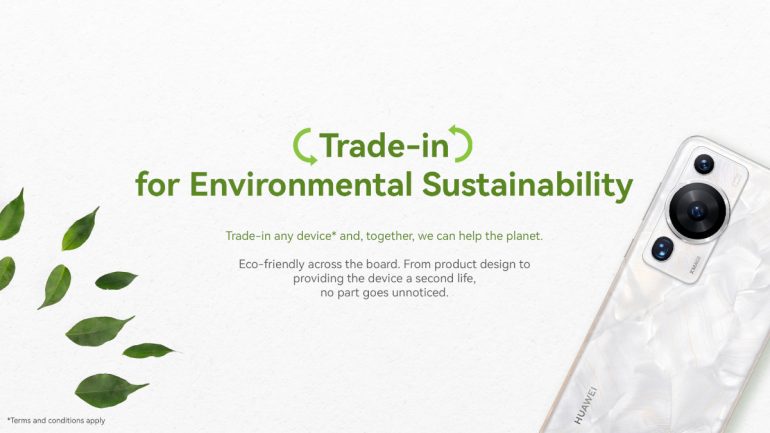Huawei believes that technology is a critical solution to the environmental challenges the world faces today. The company has focused its efforts on carbon emissions reduction, renewable energy, and supporting a circular economy.
In the Philippines, the Huawei Consumer Business group implemented trade-ins to support closed-loop management of product life cycles and sustainable production.
Huawei Trade-ins and Recycling
Smartphone users often find themselves in a dilemma between keeping a phone that works just fine and buying the latest model in the market. Huawei has proactively promoted trade-ins for the sale of its smart devices in the Philippines. Among these include the P60 Pro, Mate X3, Mate 50 Pro, and Huawei Tablet.
Since 2015, the trade-in program allowed nearly 600,000 devices to find new owners.
The company engaged industry-leading recyclers and service providers in 2021. This was to perform closed-loop management of second-hand phones that involve recycling, refurbishment, and reselling. This means that second-hand phones have to pass strict quality controls to ensure that all components are from Huawei with the units all powered by HarmonyOS and brand-new company-produced batteries.
The devices are certified by the company and sold by partners through official channels in the second-hand market and come with a one-year warranty. Consumers who avail of the trade-in program also started receiving cash coupons which they can use towards purchasing new Huawei products.

With a plan to extend its second-hand device business from phones to tablets, laptops, and other products, more consumers will have the opportunity to acquire high-quality second-hand Huawei devices.
The e-waste is also addressed by handing over unusable used devices to professional environmental protection enterprises to be recycled and disassembled in an effort to help lessen environmental pollution.
Incorporating Green Product Designs
Additionally, the company managed the use of chemicals in its products and adjusted its processes to implement hazardous substance controls in its phones that are more uncompromising than those required by laws and regulations starting in 2016.
It also complies to the China Restriction of Substances (RoHS) as well as the European Union regulation Registration, Evaluation, Authorisation and Restriction of Chemicals (REACH). The company created measures to cut back on chemicals being used throughout the manufacturing process across the entire supply chain.
Premium eco-friendly renewable materials have also made their way into the process of the company. While going fully renewable remains a challenge, it continues to work with partners and suppliers to improve the supply chain by incorporating high-quality renewable into product manufacturing.
The company chose to widely use bio-based plastics during phone production to mitigate the negative environmental impact associated with manufacturing.
Eco-friendly Packaging Design
From January 2021 to August 2022, the tech giant reduced the packaging used for its smartphones, wearables, tablets, PCs, monitors, and other products and looks to implement design optimizations moving forward.
It also committed itself to using non-plastic materials for its packaging when possible. The company started using a special paper on its Mate 50 series to replace the protective film on the phone’s screen to lessen plastic use.
A high-strength paper was also developed and used to replace plastic sealing labels on its boxes.
Longer Product Lifespans
Durability and maintaining high quality in its products is one of Huawei’s most effective ways to protect the environment.
One of the main strategies for sustainability for its smartphones is to make its products last longer. It is doing so by selecting and developing materials to manufacture safe and reliable hardware during the design phase. Moreover, it has come up with innovations that comply with stringent international standards and withstand extreme conditions like drops, impacts, and changes in temperature and moisture.
Flagship phones like the P60 Pro come equipped with Kunlun Glass and received the first-ever five-star glass drop resistance certification from Switzerland’s SGS. The company’s latest foldable the Mate X3 is also protected by this glass on its outer screen and comes with an inner screen made of Non-Newtonian fluid materials.
Repaying Trust with Responsibility Through Technology
Huawei continues to take its role in protecting the environment seriously by continuing to develop technological solutions to help mitigate the effects of climate change. Through its commitment throughout its processes, logistics, and operations, the company continues to look for technological solutions and develop innovations that address environmental issues through technology.
Discover the latest from Huawei by checking out the official Facebook page and Facebook Community.
Source: Gadget Pilipinas
0 Comments